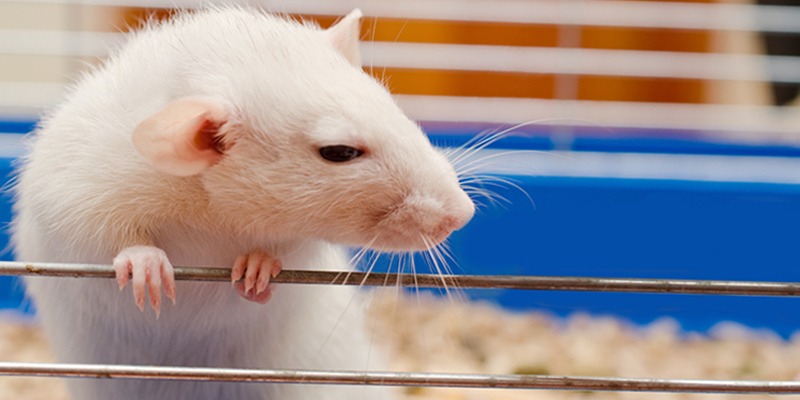It’s impossible to tell the story of human history without talking about alcohol. Alcohol helped shape America and can be a tribute to the dead. It’s shaped secret ancient clubs and brought cultures together through unique drinking customs.
But amid all the fuss surrounding alcohol’s importance in human history, people tend to forget that humans aren’t the only mammals touched by the nectar of the gods. Countless rats are familiar with a tipple or two as well, even if it is forced on them by humans. Regardless of how it happens, though, humans have learned a lot about rats’ drinking habits. Here is a sampling of what we know about the consumption habits of rats.
Rats don’t have to deal with hangovers!
A 2012 study from researchers at the University of California, Los Angeles found that dihydromyricetin can clear up rats’ hangover symptoms in no time. What, exactly, are rat hangover symptoms? Generally the same as in humans, but as far as we know, they don’t include nearly as much complaining or endless repetitions that the rat is never going to drink again, for real this time.
It takes more than 900 genes to make a rat an alcoholic!
Rats aren’t simpletons, guys. Just take a look at their DNA in relation to drinking. The Indiana Alcohol Research Center found 930 genes that contribute to making a rat dependent on alcohol. To figure this out, researchers used a strain of rats that was force-fed alcohol until they liked it, and a strain of teetotaling rats. The drunkard strain is more likely to drink to stay drunk, have withdrawals, and complete work tasks for alcohol.
Maybe out in the wild somewhere, there’s a genetically complex sewer rat making prison-style hooch for pizza rat, but scientists tend to stick with the lab-bred rats.
Drinking during pregnancy makes baby rats alcoholics!
Researchers at Binghamton University found that when pregnant rats drink, their offspring and their offspring’s offspring become alcoholics and recover from drinking faster. To prove this, researchers gave pregnant rats a glass of wine (well, the rat version of a glass of wine) for four days during the rat equivalent of the second trimester.
When the children were offered water or alcohol, they more often chose alcohol. Those that didn’t want to drink were injected with pure alcohol to test how their little rat bodies reacted to the substance. The drinkers proved to get over their drunken stupors faster. Science!
There’s a single gene to alcohol dependency!
Yes, this directly contradicts the 930 number above. But it’s science, and studies on rats don’t often have a budget for replication. The National Institute on Alcohol Abuse and Alcoholism found that one gene is vastly different from the same gene in non-alcoholic rats.
Alcohol prevents rat Alzheimer’s!
That’s right. Claims that alcohol prevents Alzheimer’s isn’t just for human Alzheimer’s. Rats that were fed “an alcohol liquid diet for five weeks,” Psychiatry Advisor reports, had increased proteins in the hippocampus that lower the incidence of brain cell death. A five-week alcohol diet isn’t recommended for people, though. If you insist on having something that could be considered an alcohol diet, stick with the three martini liquid lunch. Disclaimer: It definitely won’t prevent Alzheimer’s.
Champagne improves rat memory and prevents Alzheimer’s!
Again with the Alzheimer’s. Researchers at the University of Reading in England forced a glass of Champagne a week on rats (again, the rat-level equivalent) and found that the drinking rats were better at solving mazes than the rats that didn’t drink. The researchers claimed it was due to the phenolic compounds in Champagne. If phenolic compounds helping Alzheimer’s sounds familiar, it’s probably because the same compounds are what people generally claim as the thing responsible in red wine for improving memory. But hey, Champagne is made of Pinot Noir and Pinot Meunier, and the rats that were tested have a touch of class and an affinity for the finer things in life.
Drunk lab rats try to escape the lab!
A group of researchers from places like the Russian Academy of Medical Sciences and the University of North Carolina put drinking rats and rat prudes to the test to see which ones could complete tasks better. Both completed the swim and maze tests at about the same rate, but the alcoholic rats tried to escape the maze more often. Fight the power!
Rats drink when stressed!
German researches deprived alcohol dependent rats (aka rats they had previously made alcohol dependent) and then put them in stress tests. For three days, the rats were kept from having a drink and were put in cold water and had their little rat feet shocked. After those three days of Guantanamo-level torture, the alcoholic rats really wanted a drink. Surprise?

